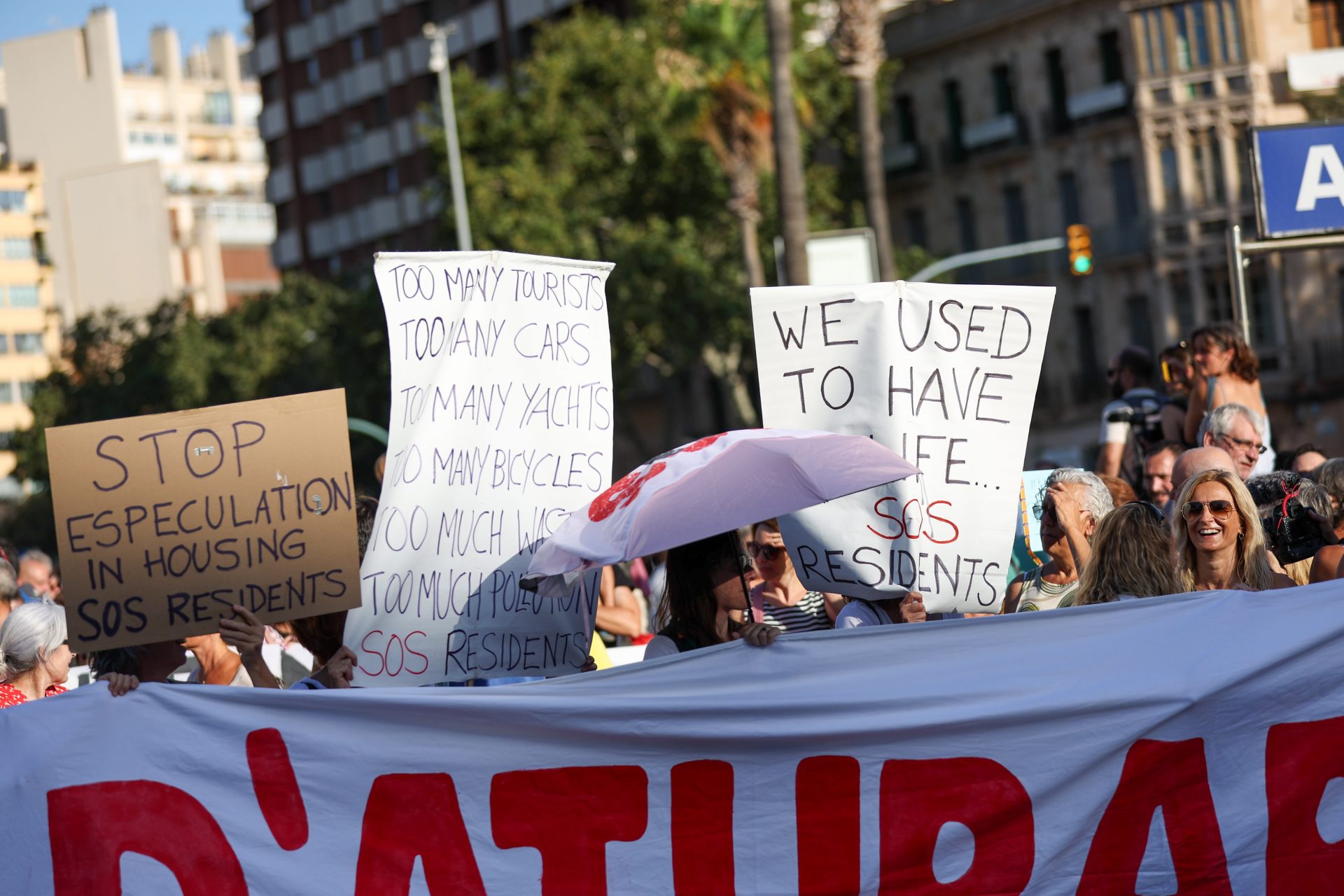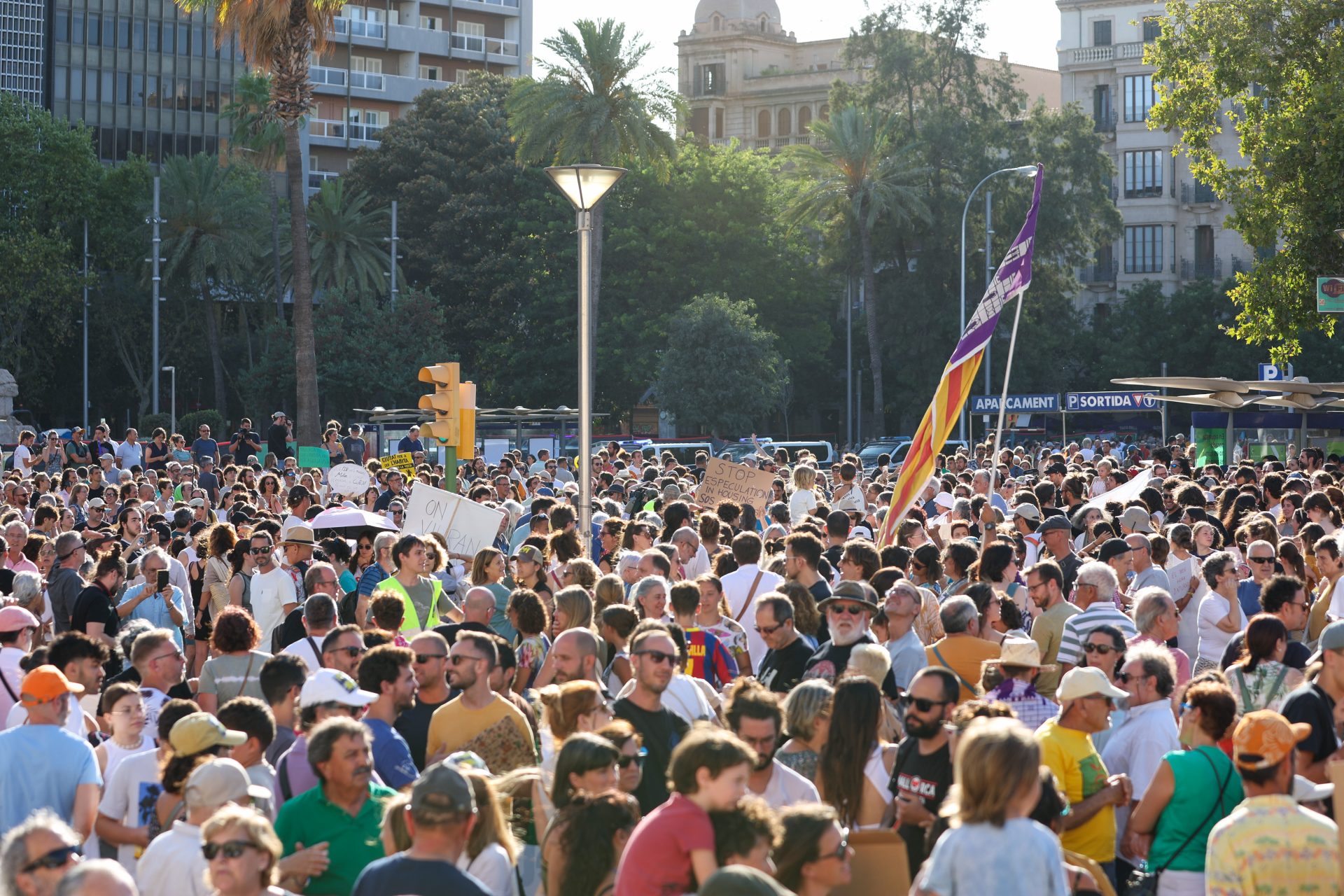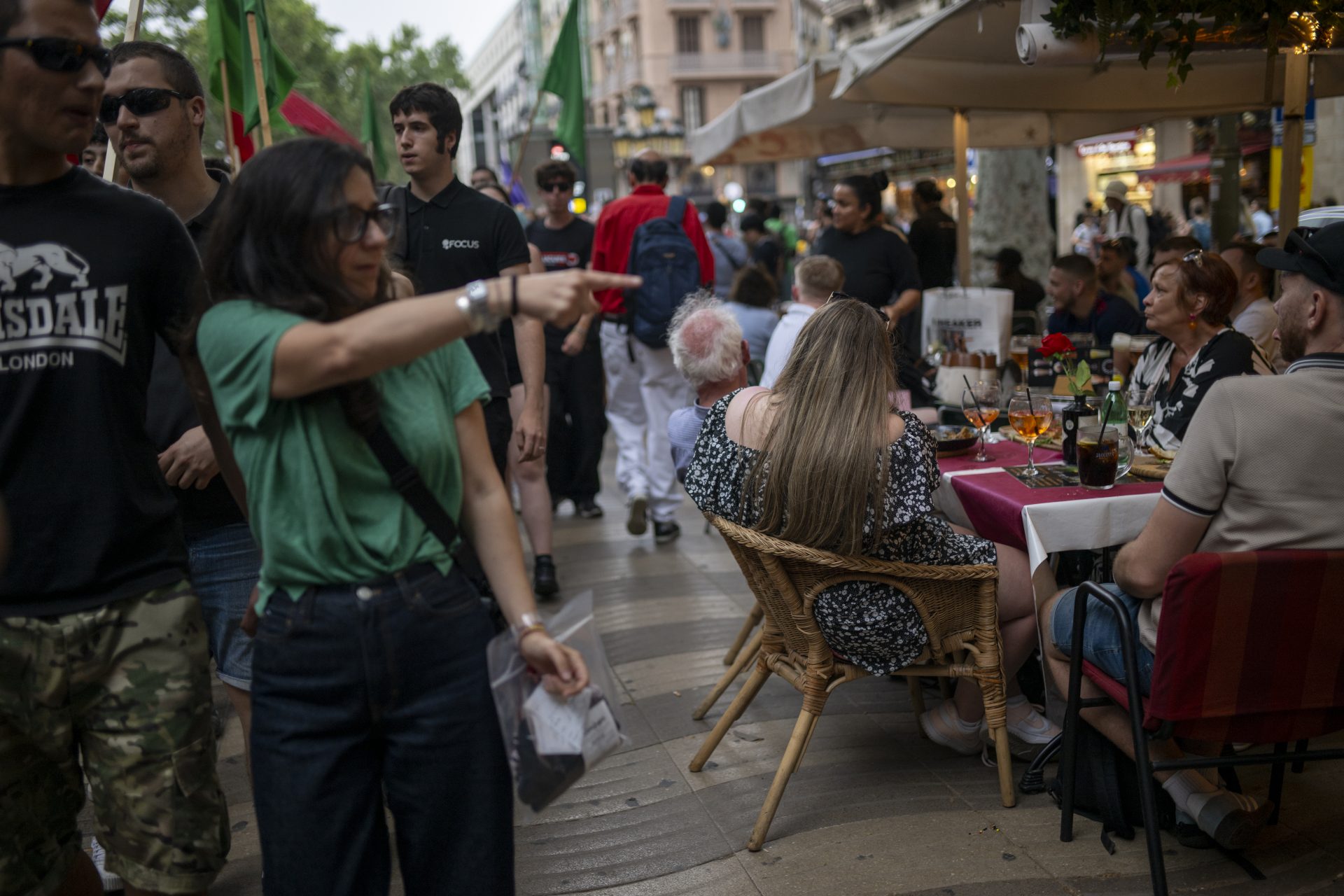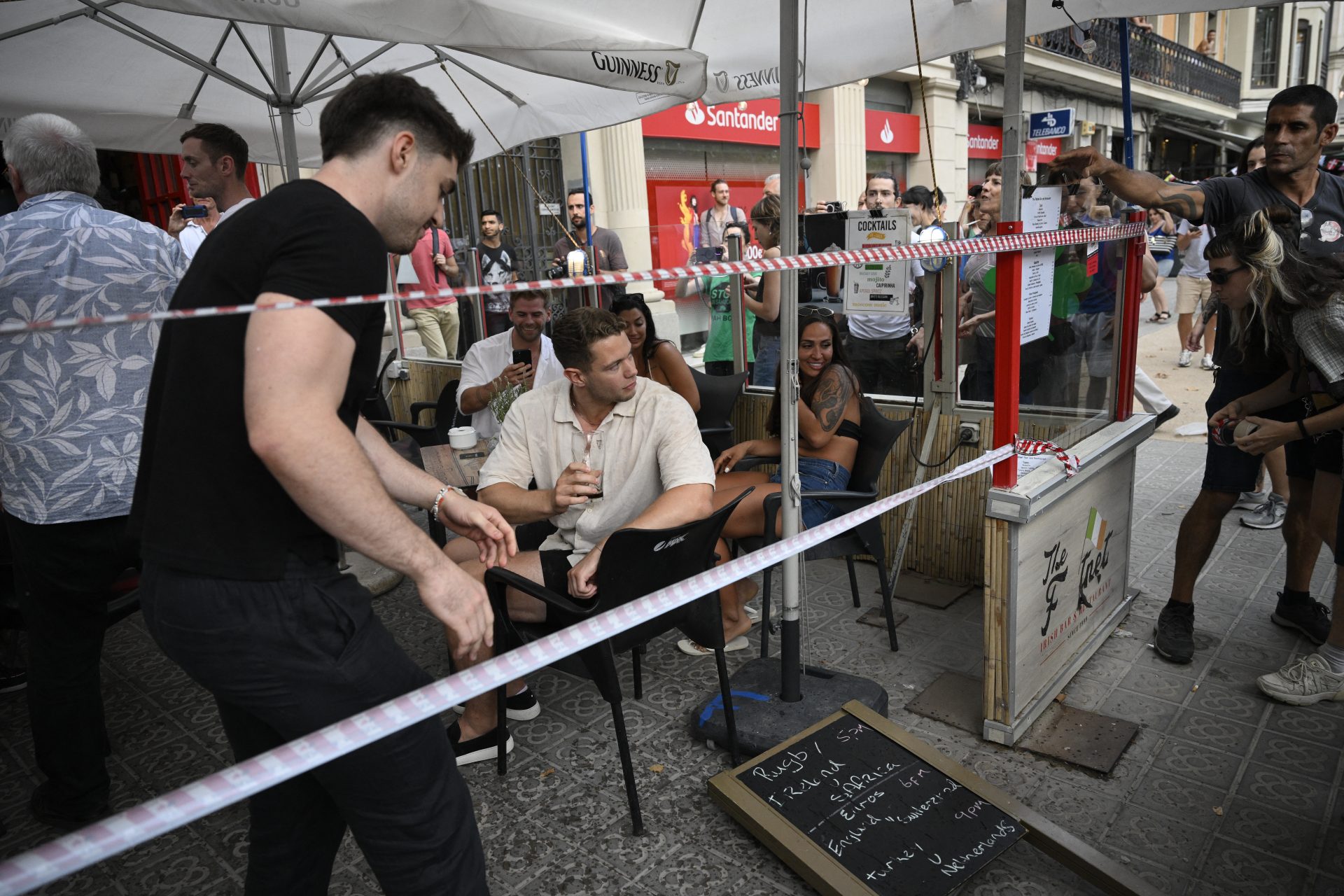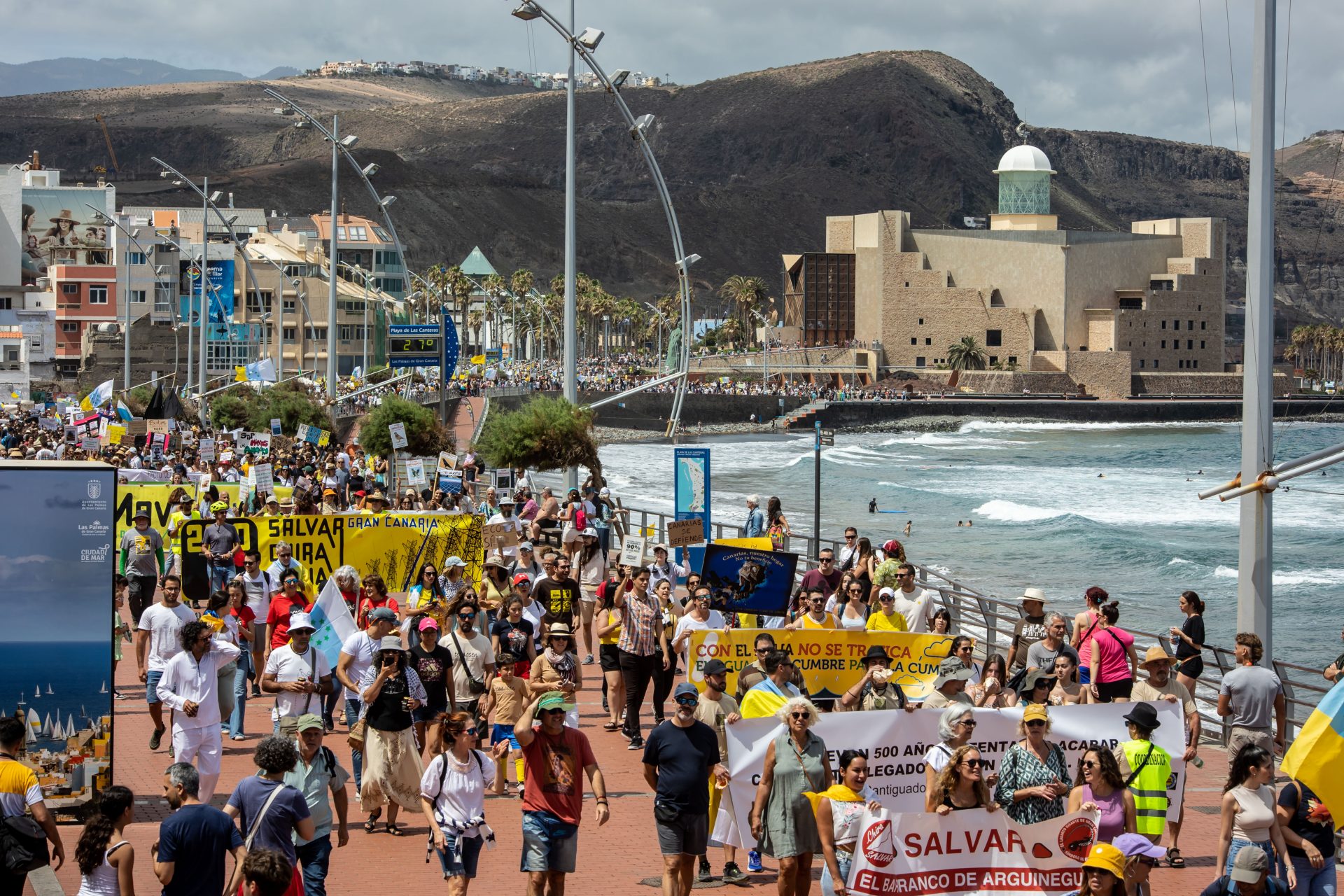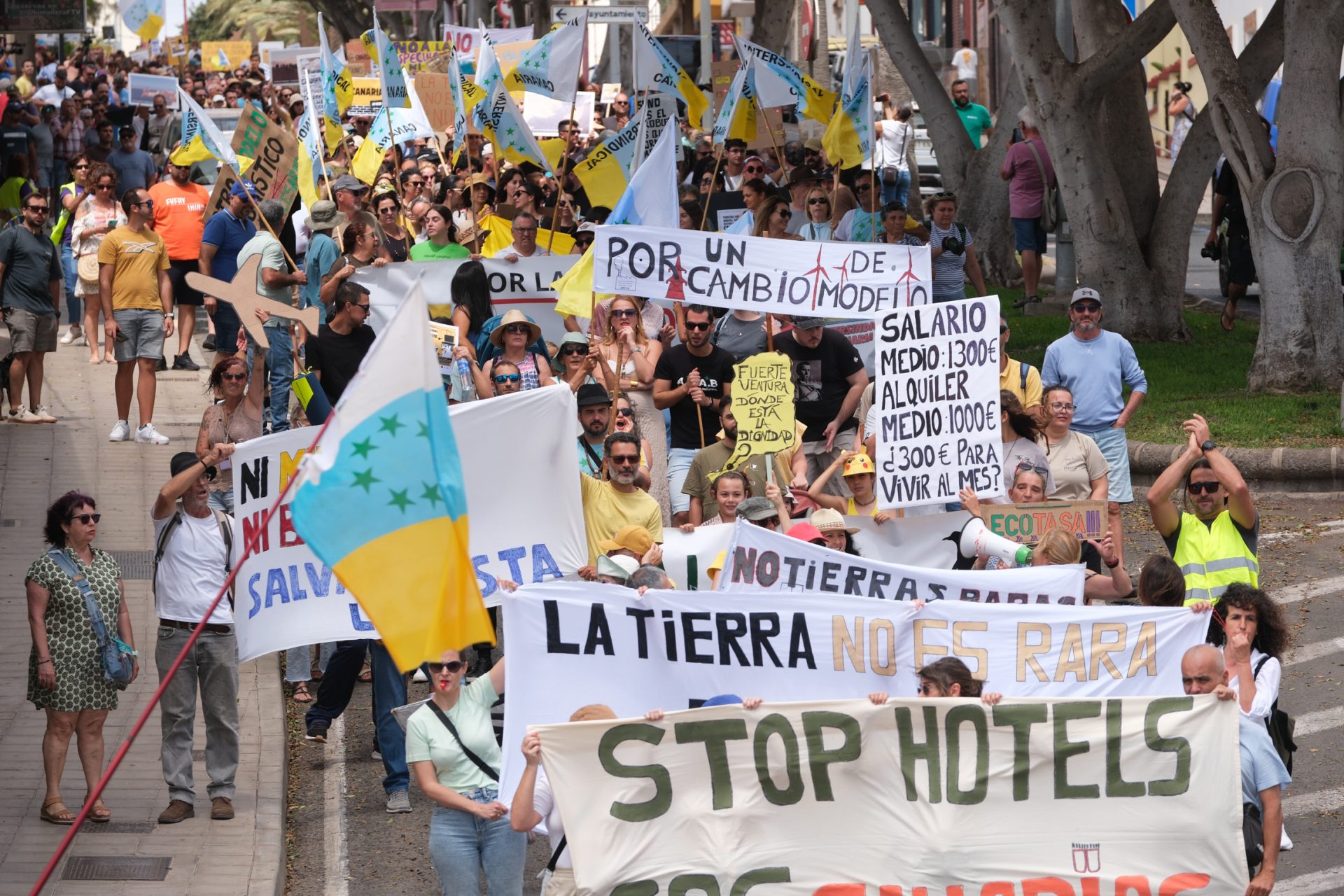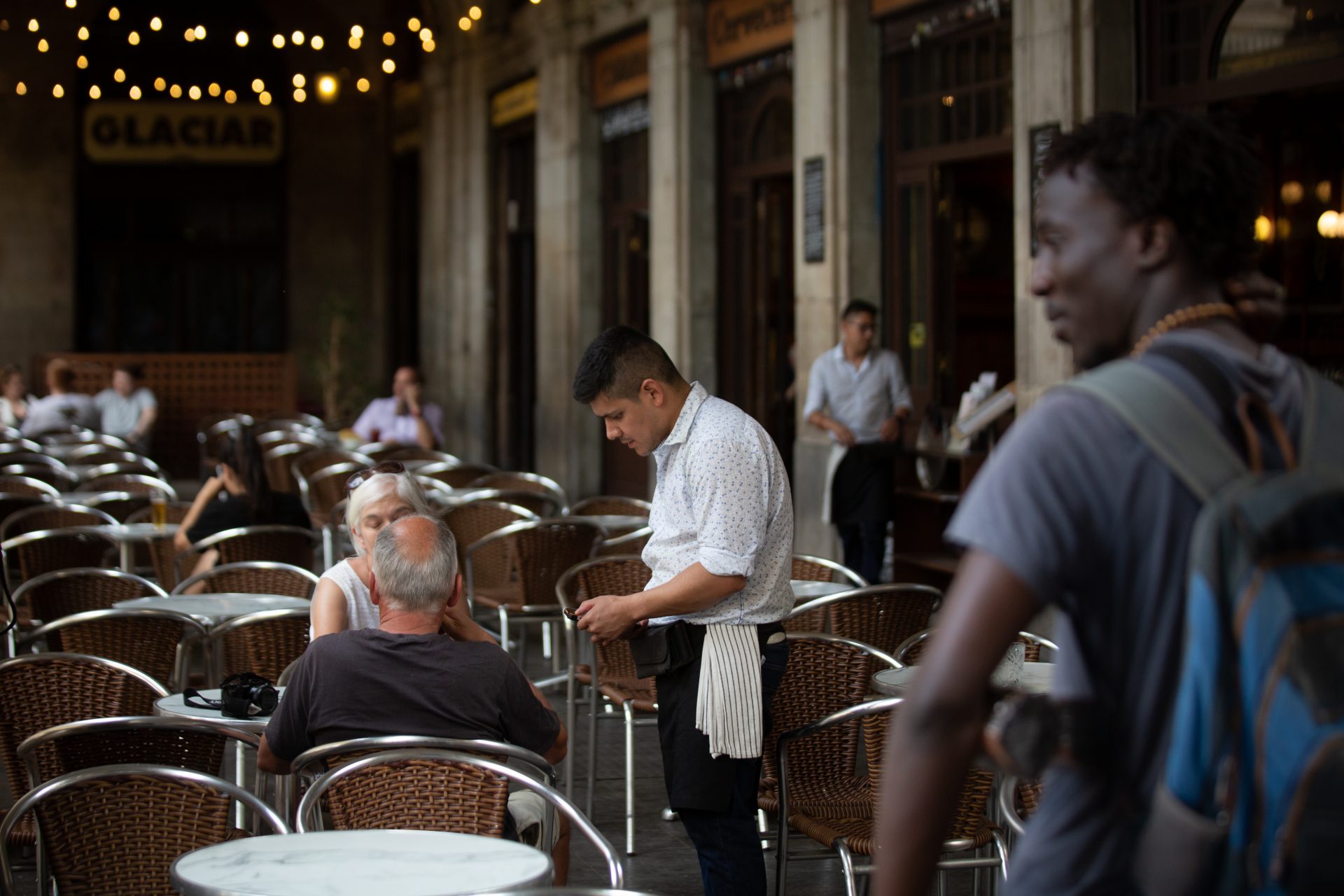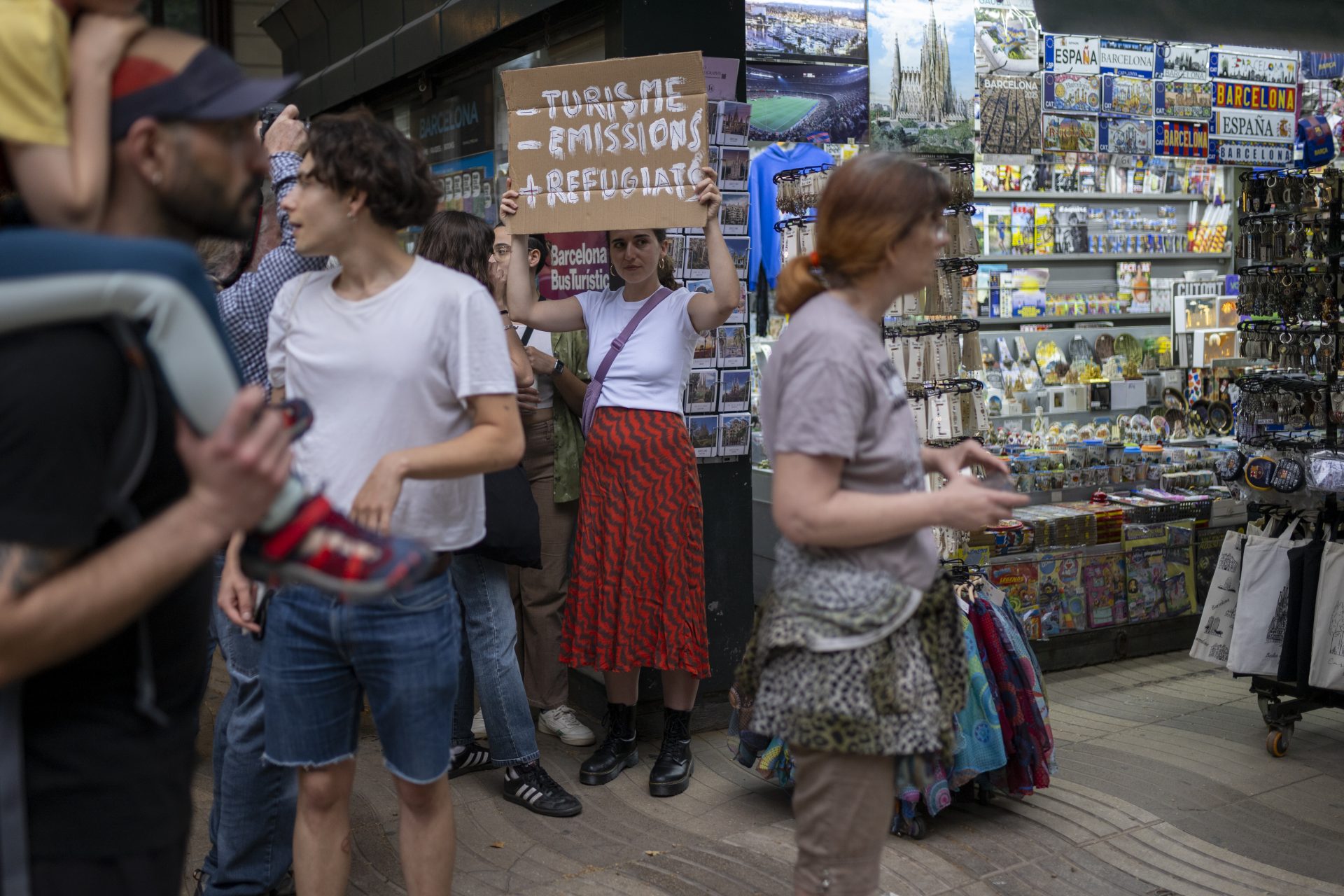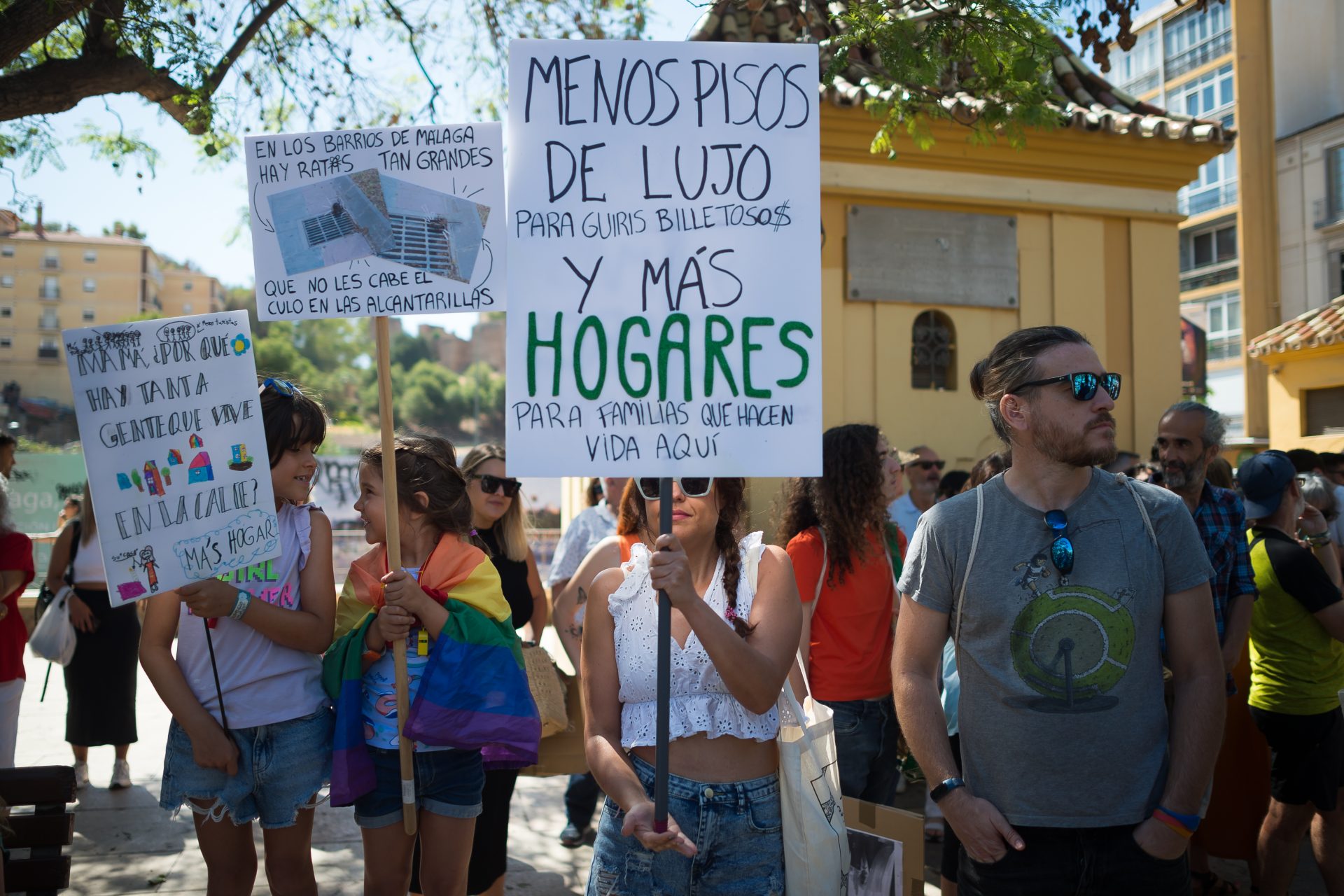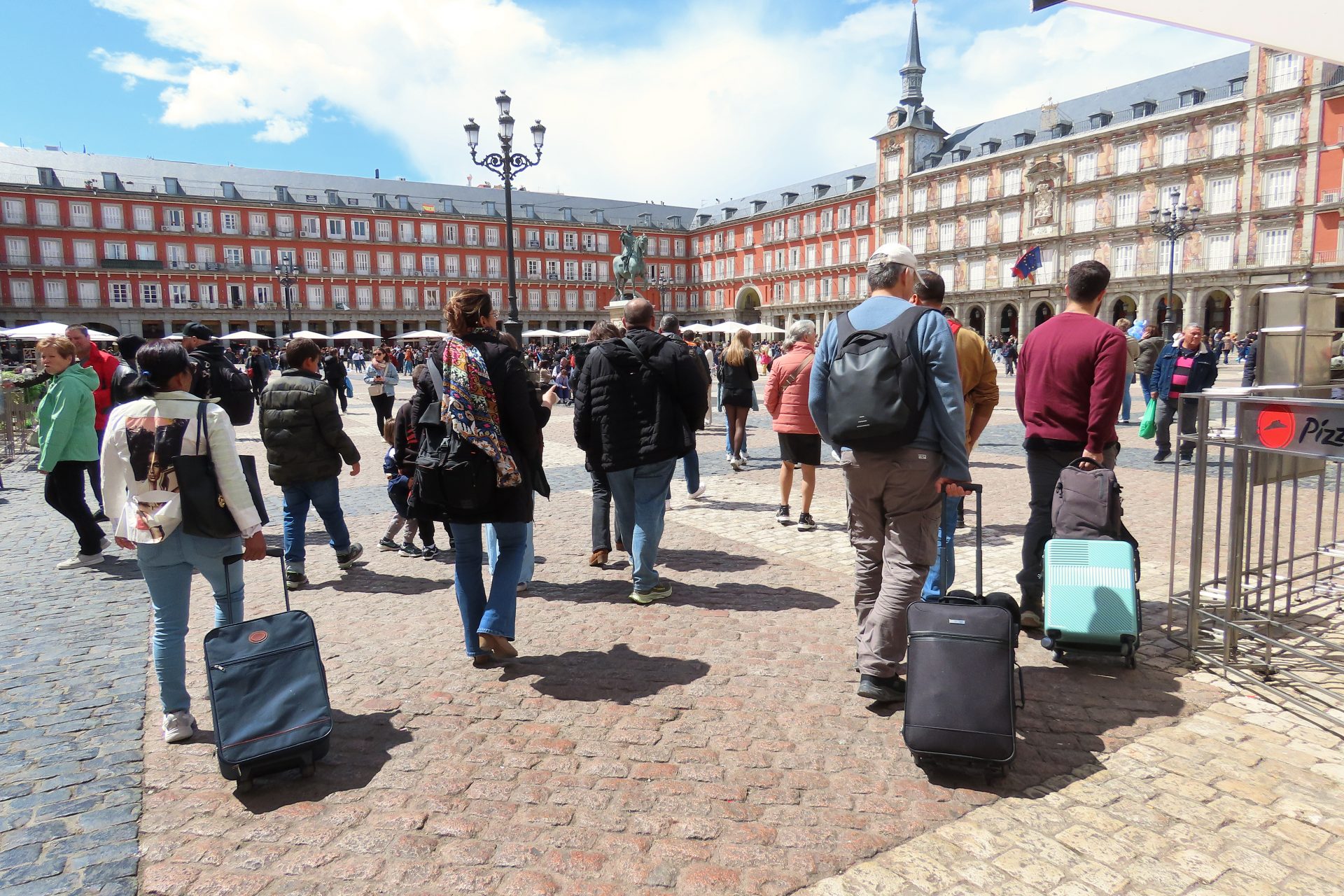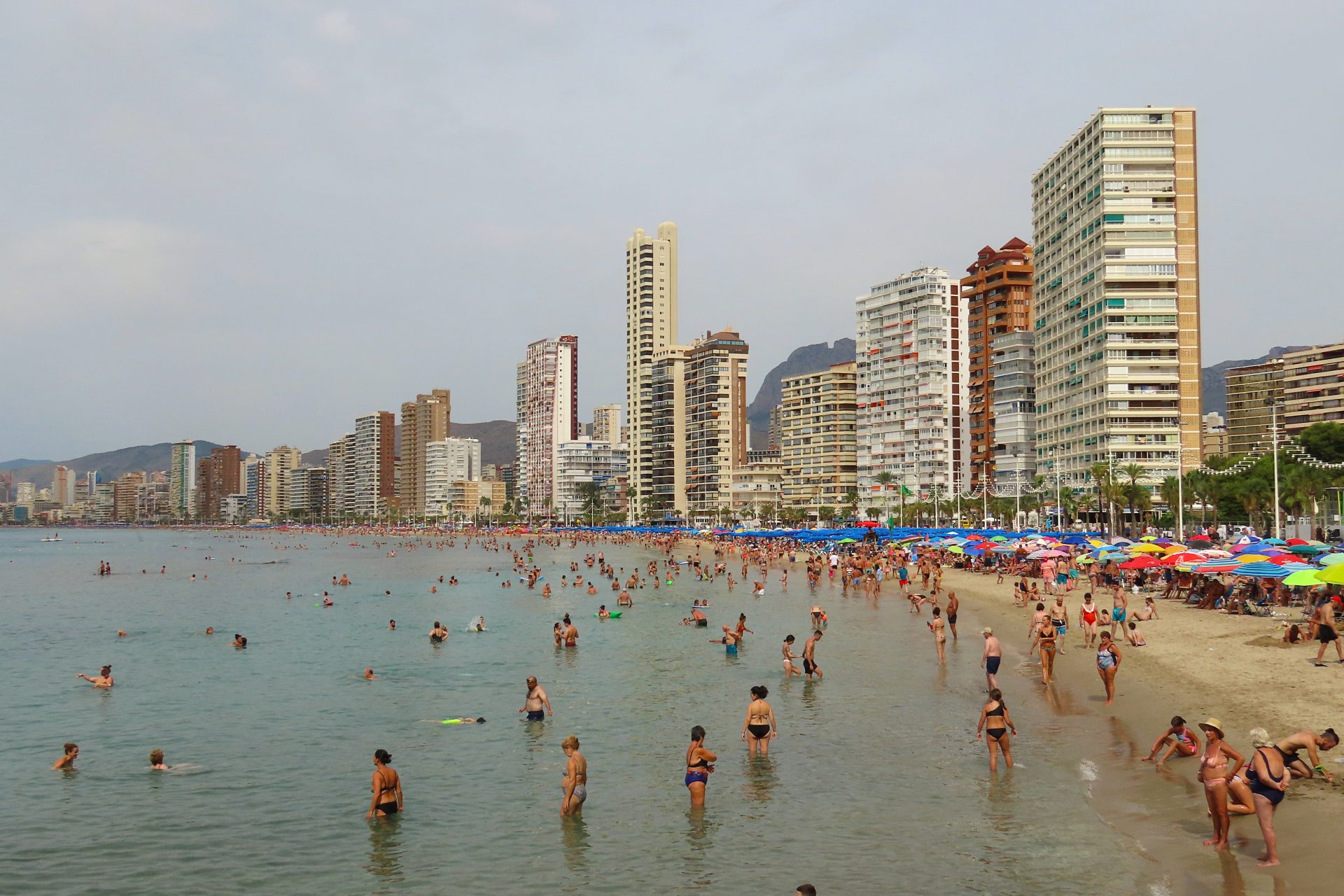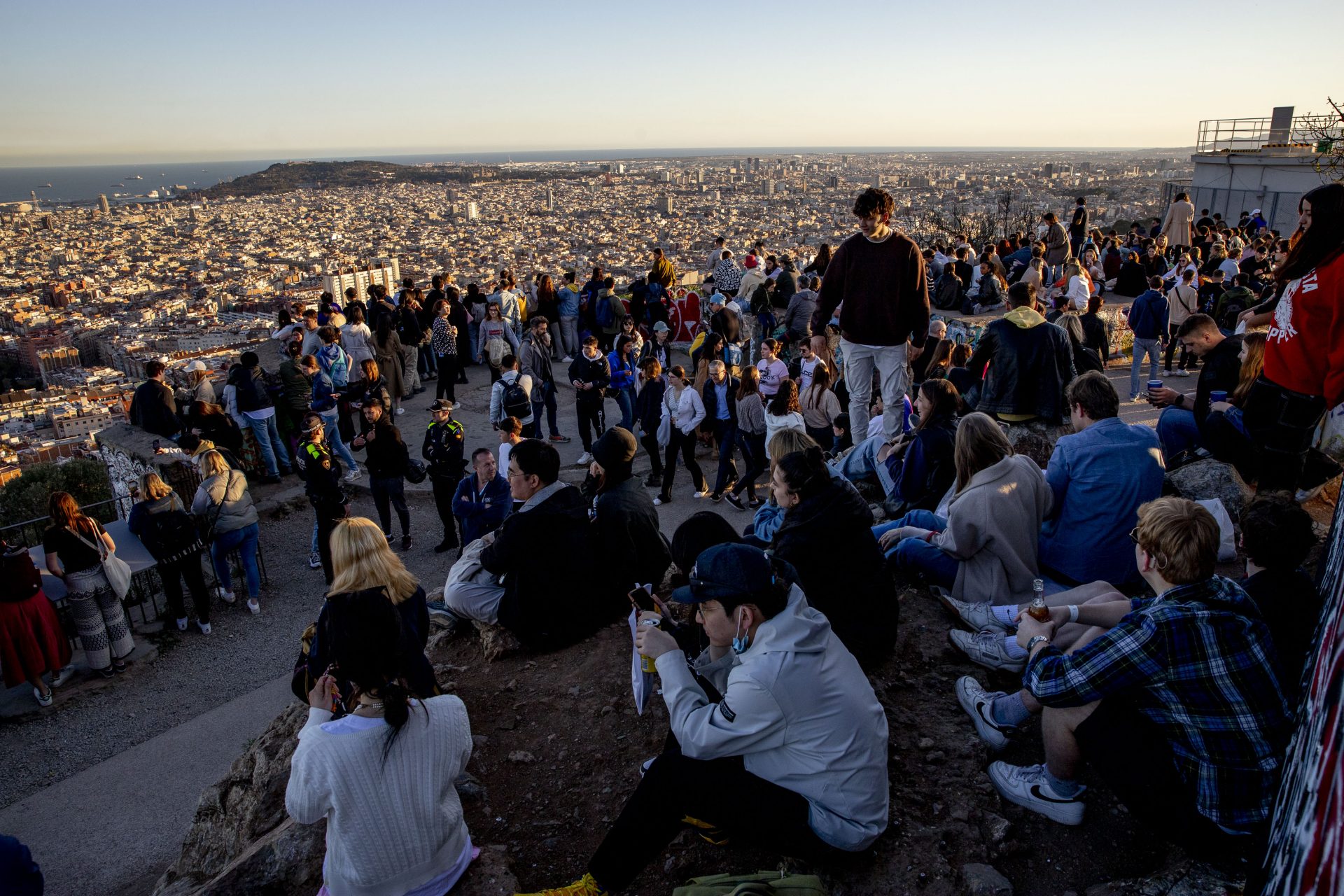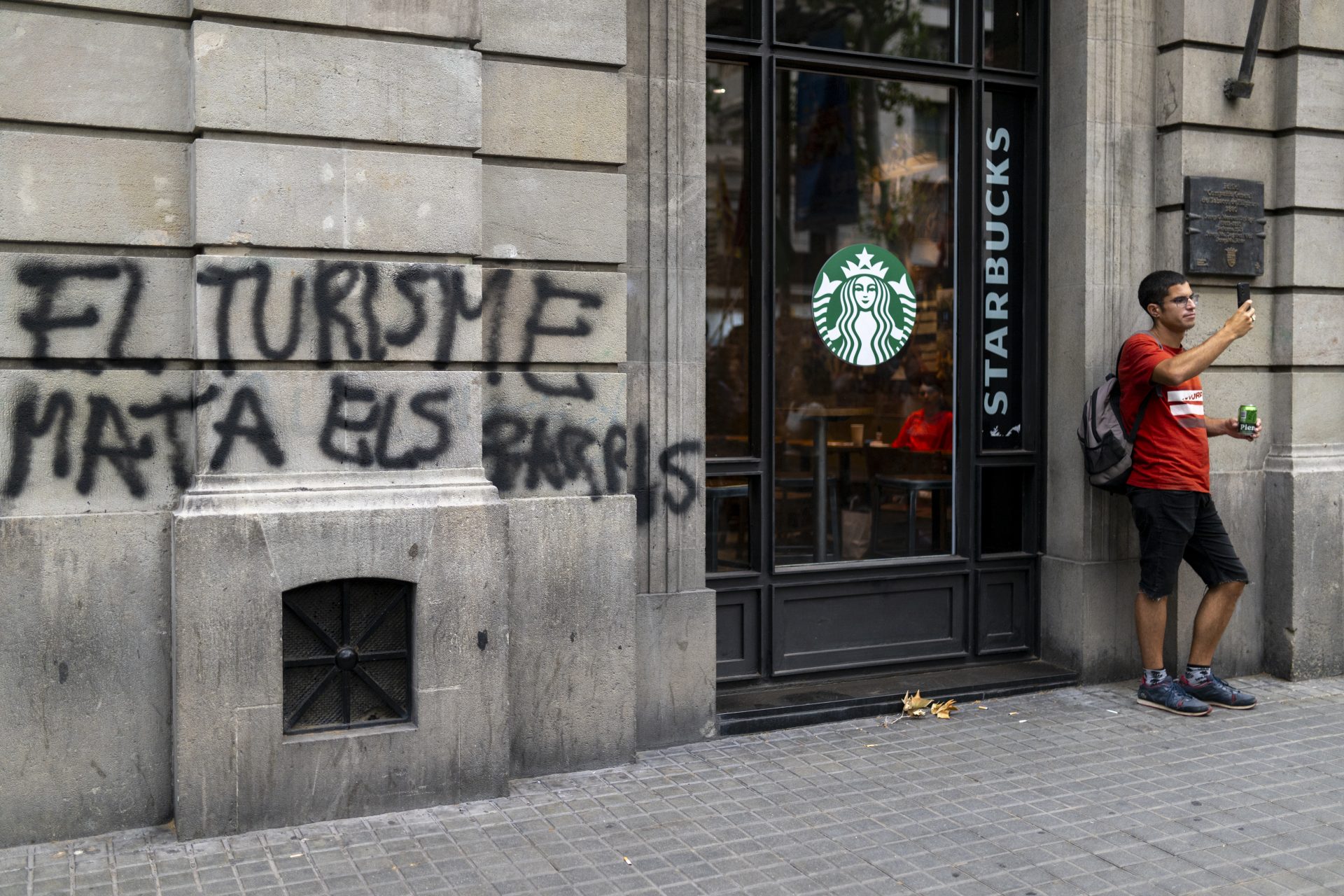Tourists Go Home! Why protests against tourism in Spain are growing
On July 21, the island of Mallorca was the scene of a large protest against mass tourism. The local population is fed up.
Both in Mallorca and in the other Balearic islands (Ibiza, Menorca, Formentera) there were thousands of protesters against tourism, which they blame for increasing housing prices, saturating infrastructure (roads, hospitals...) and destroying the local culture.
And the protests in the Balearic archipelago are not the only ones that have occurred in Spain recently. There is a growing movement calling for putting a stop to mass tourism.
In protests that took place this summer in Barcelona, tourists were singled out and sprayed with water guns along with some other aggressive gestures.
For example, on July 8 there were protesters who placed ribbons to symbolically close the terraces most frequented by tourists.
And in the Canary Islands, on April 8, there were also thousands of protesters out to speak out against the ravages of mass tourism. What is happening in Spain?
The feeling in Spain is that everything is made available to the tourist and the locals aren't being taken care of. There is no affordable housing for the people of the country, the prices of food and other services have increased and salaries have not risen to help the Spanish with these costs.
It is important to remember that salaries in Spain are much lower compared to many other countries in European Union. For example according to the website PayScale, waiters typically get paid around €7.15 per hour, which is hardly enough to live off of in cities such as Barcelona where, according to Catalan News, monthly rent has reached an all time average high of €1,193.41 per month.
There are places like Mallorca or Ibiza where public officials (mainly teachers and police officers) have resigned from their jobs because the salary is not enough to live off of or afford housing. Teachers in the public sector in Spain usually make a salary of between €1,500 to €2000 euros per month.
The housing situation is so extreme that some have found themselves forced into living in motorhomes or very poor living situations. In the case of the large cities, residents find themselves pushed further and further towards the outer limits of the city in search of lower rents. Pictured: a protestor holds a sign demanding less luxury apartments and more homes for locals.
And then there is the feeling that public spaces are degraded by the presence of uncontrolled gaggles of tourists dragging their suitcases through the historical places of the most touristy cities.
Add to all this the environmental impact of tourism in the form of polluting gas emissions from cruise ships or airplanes. According to a 2019 study cited by Business Insider, tourism produces 8% of greenhouse gas emissions.
In particular the excess of young adult tourists usually from the United Kingdom or Germany have aggravated locals. In places like Majorca's Magaluf (in the photo) large groups of teens and young adults invade the area and wreck havoc with activities such as 'balconing', a stupid practice consisting of jumping of hotel balconies that claim several lives every year.
The contradiction is that, in the face of all the great annoyances and problems, Spain is a country whose economy depends heavily on tourism: it represents 12.8% of the GDP, according to the Spanish newspaper El País.
What critics of mass tourism are asking for is not the prohibition of tourist activity (that would be absurd), but rather the limitation of the number of visitors to certain areas and measures that correct the upward trend in prices that punish the local population.
Higher tourist taxes are also requested to finance the services of all citizens, as well as a moratorium on the opening of new hotels and the radical limitation of Airbnb (something that, for example, the Barcelona authorities recently announced).
More for you
Top Stories



